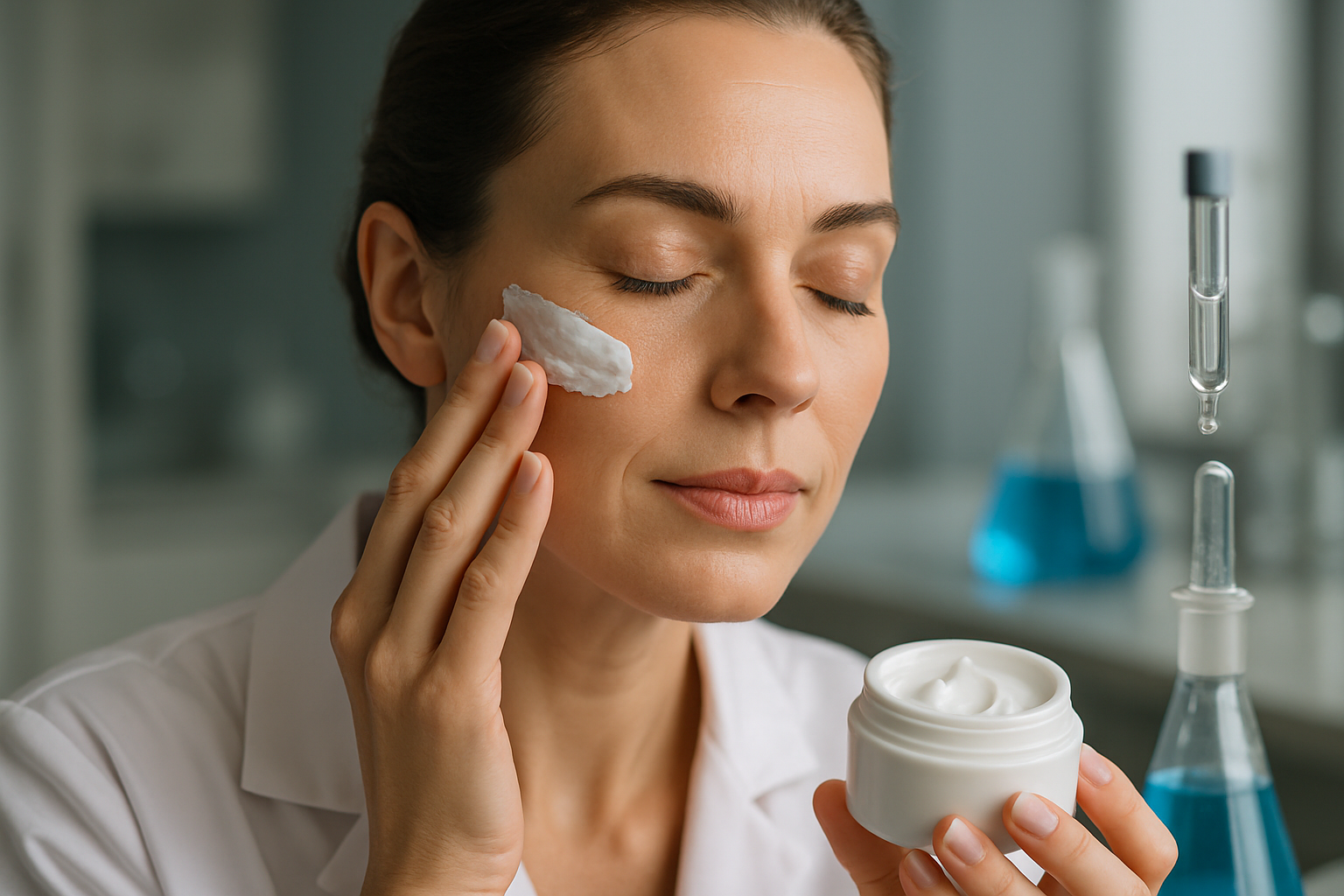Managing Psoriasis: How Topical Creams Can Support Skin Comfort
Psoriasis affects millions of Americans, causing red, scaly patches that can significantly impact daily comfort and confidence. While this chronic skin condition requires ongoing management, topical creams have emerged as a cornerstone of effective treatment, offering relief from symptoms and helping restore skin barrier function. Understanding how these specialized formulations work and choosing the right products can make a meaningful difference in managing this challenging condition.

Understanding Psoriasis and Its Common Symptoms
Psoriasis is an autoimmune condition that causes skin cells to multiply rapidly, resulting in thick, silvery scales and itchy, dry patches. The most common form, plaque psoriasis, typically appears on elbows, knees, scalp, and lower back, though it can affect any area of the body. Symptoms often include persistent itching, burning sensations, and skin that feels tight or painful.
The condition occurs when the immune system mistakenly attacks healthy skin cells, accelerating the normal skin renewal process from weeks to just days. This rapid turnover creates the characteristic buildup of skin cells that form raised, inflamed patches. Environmental triggers such as stress, infections, certain medications, and weather changes can worsen symptoms, making consistent skincare management essential for long-term comfort.
The Role of Moisturizing Creams in Managing Skin Discomfort
Moisturizing creams play a fundamental role in psoriasis management by helping restore and maintain the skin’s protective barrier. When psoriasis disrupts normal skin function, moisture escapes more easily, leading to increased dryness, irritation, and potential for flare-ups. Quality moisturizing formulations work by creating a protective seal on the skin’s surface while delivering hydrating ingredients to deeper layers.
Regular application of appropriate moisturizing creams can significantly reduce scaling, itching, and inflammation associated with psoriasis. These products help normalize the skin renewal process and create an environment that supports healing. Clinical studies have shown that consistent use of moisturizers can extend the time between flare-ups and reduce the severity of symptoms when they do occur.
Key Ingredients to Look for in Soothing Psoriasis Creams
Effective psoriasis creams contain specific ingredients that address the condition’s underlying mechanisms. Ceramides are particularly valuable, as they help rebuild the skin barrier and lock in moisture. These naturally occurring lipids are often depleted in psoriatic skin, making supplementation through topical products crucial for recovery.
Salicylic acid serves as a gentle exfoliant, helping remove excess scale buildup without causing irritation. Urea and lactic acid provide similar benefits while also attracting moisture to the skin. Coal tar, though less cosmetically elegant, remains one of the most effective ingredients for reducing inflammation and slowing rapid cell turnover. Natural ingredients like aloe vera, colloidal oatmeal, and niacinamide offer additional soothing properties that can complement these active components.
Daily Skincare Tips to Support Healthy and Comfortable Skin
Establishing a consistent daily routine maximizes the benefits of topical treatments. Apply moisturizing creams immediately after bathing while skin is still damp to trap moisture effectively. Use lukewarm water instead of hot water, which can strip natural oils and worsen irritation. Gentle, fragrance-free cleansers help avoid additional skin stress.
Timing applications throughout the day enhances comfort and treatment effectiveness. Many people find that applying heavier creams at bedtime allows for deeper penetration without interference from clothing or activities. During daytime, lighter formulations may be more practical while still providing necessary moisture and protection. Keeping a travel-size option available ensures consistent care regardless of location or schedule.
When to Consult a Dermatology Professional
While over-the-counter topical creams can provide significant relief for mild to moderate psoriasis, certain situations warrant professional evaluation. If symptoms worsen despite consistent treatment, cover large areas of the body, or significantly impact daily activities, a dermatologist can provide more targeted interventions and rule out complications.
Professional guidance becomes essential when psoriasis affects sensitive areas like the face, genitals, or hands, as these locations may require specialized formulations. Additionally, if joint pain accompanies skin symptoms, evaluation for psoriatic arthritis is important. Dermatologists can also provide access to newer treatment options and help develop comprehensive management strategies that address individual needs and lifestyle factors.
| Product Type | Key Benefits | Typical Cost Range |
|---|---|---|
| Over-the-counter moisturizers | Basic hydration, barrier repair | $10-30 per tube |
| Specialty psoriasis creams | Targeted ingredients, clinical formulations | $25-60 per tube |
| Prescription topicals | Stronger active ingredients, customized treatment | $50-200+ with insurance |
Prices, rates, or cost estimates mentioned in this article are based on the latest available information but may change over time. Independent research is advised before making financial decisions.
Managing psoriasis effectively requires patience, consistency, and the right combination of topical treatments. While the condition presents ongoing challenges, modern formulations offer unprecedented opportunities for symptom control and improved quality of life. By understanding how different ingredients work and establishing appropriate daily routines, individuals with psoriasis can achieve meaningful improvements in skin comfort and appearance. Success often comes from finding the right balance of products and techniques that work for your specific situation and maintaining realistic expectations about the gradual nature of improvement.
This article is for informational purposes only and should not be considered medical advice. Please consult a qualified healthcare professional for personalized guidance and treatment.




